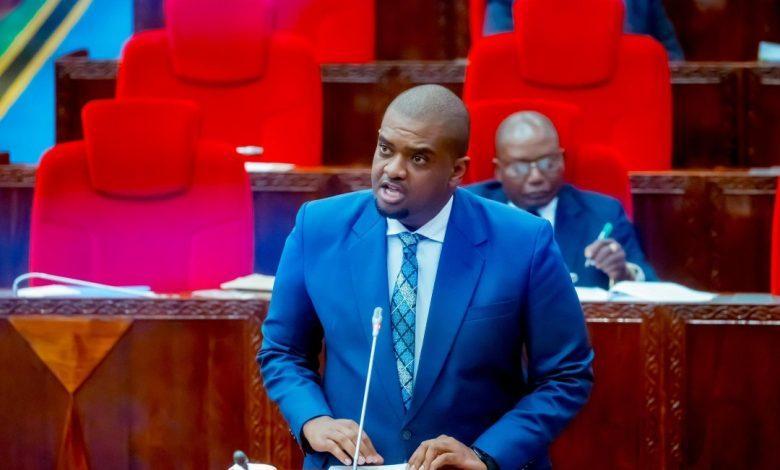Africa-Press – Tanzania. THE National Assembly has passed the National Housing Corporation (Amendment) Bill, 2025, which among other changes imposes tougher penalties for disclosure of confidential information and obstruction of NHC operations.
According to the amendments, any person found guilty of disclosing the corporation’s confidential information will be liable to a fine of 500,000/-, up from the previous 2,000/-.
Individuals who provide false information will face a fine of not less than 500,000/- and not exceeding 2m/-, while companies will be subjected to a fine ranging from 1m/- to 10m/-.
In addition, such offences may attract imprisonment of not less than six months and not exceeding 12 months or both fine and imprisonment. The bill also introduces penalties for any individual who resists or obstructs a member or officer of the corporation, a police officer, or any authorised person in the execution of their duties.
abling the bill for its second and third readings in the National Assembly on Monday, Minister for Land, Housing and Human Settlements Development, Mr Deogratius Ndejembi, said amendments to Sections 15, 16, and 17 were proposed to strengthen penalties which had become outdated.
“The objective of the amendment is to ensure that penalties imposed are commensurate with the prevailing monetary value and the severity of the offence,” said the minister, adding that the amendments also aim to empower the judiciary and other legal authorities to impose suitable penalties whether the offence is committed by an individual or a corporate entity.
Mr Ndejembi further noted that Section 9 has been amended to broaden the scope of documents that may be signed by a senior officer upon delegation by the Director General. Currently, such delegation only applies to lease agreements.
“The purpose of this amendment is to facilitate timely execution of contracts and accelerate implementation of the corporation’s functions,” he said.
He also revealed that Sections 12 and 13 have been amended to remove the obligation of employers to deduct house rent and penalties for unpaid rent from salaries of employees who are tenants of the corporation. The minister said under the new procedure, such employees will now pay rent in the same manner as other private tenants.
“The aim is to promote direct accountability of tenants and improve the corporation’s rent collection efficiency,” added Mr Ndejembi.
The minister further explained that Section 18 is proposed to be amended to vest the authority to appoint the Director General in the President, replacing the previous provision which gave that mandate to the Minister. The amendment also outlines qualifications for the position.
“This reform seeks to promote good governance and enhance accountability in the management of the Corporation,” he said.
Presenting the views of the Parliamentary Committee on Lands, Natural Resources and Tourism, Chairman Mr Timotheo Mnzava said the penalties imposed on companies were disproportionately low compared to the same offences when committed by individuals.
“To ensure proportionality and fairness, the committee recommends that the fine for companies be not less than 2m/- and not exceeding 10m/-,” he said.
Mr Mnzava also noted that the committee recommends at least five years of experience as a minimum qualification for appointment of Director General, to ensure that the office is held by a qualified and experienced individual.
He added that the effectiveness of the amended law would depend significantly on the corporation being empowered to enhance debt recovery and project implementation.
“The committee urges the government and its institutions tenants in NHC properties to clear all outstanding debts to enable the corporation to function effectively,” he said.
For More News And Analysis About Tanzania Follow Africa-Press







